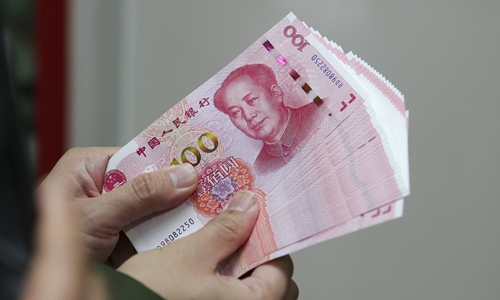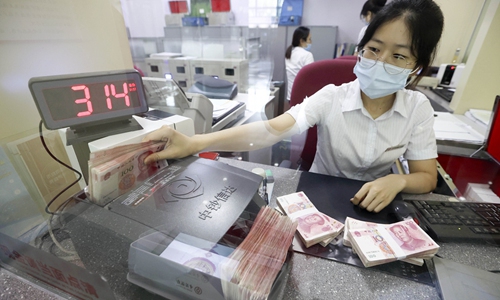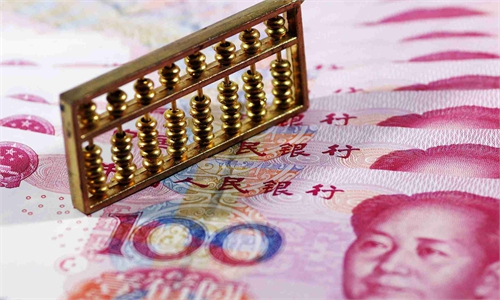
Photo: VCG
China's yuan has grown in strength against the US dollar in recent weeks, which some economists say can last up to three to six months in the future, as China has shown a clear advantage over the US in pandemic control and the ensuing economic recovery.On Thursday, as of 17:06 pm, the offshore yuan rose by 0.04 percent, to 6.9149, against the US dollar, compared to three months ago, when it stood at more than 7.10.
The offshore yuan had once surged above the mark of 6.9 against the US dollar Wednesday afternoon, marking the highest level since January.
The onshore yuan had also grown by about 0.01 percent to 6.9198 against the US dollar as of 17:10 pm.
On Thursday, the yuan's central parity rate against the US dollar stood at 6.9274, down 106 basis points, according to data provided by the People's Bank of China, China's central bank.
Ji Tianhe, head of FXLM Strategy for Global Markets China at BNP Paribas, suggested the rising value of the yuan was due to the two countries' different levels of pandemic management; that is, China has been able to put the virus under control now, and also due to the fact that the US Federal Reserve has adopted a very loose monetary policy that China's central bank has opted out of, he told the Global Times Thursday.
Liu Xuezhi, an economist at the Bank of Communications, said that the yuan's rise had been particularly triggered by China's rosier economic performance in the second quarter of the year.
From April to June, China's GDP saw a positive growth of 3.2 percent, while the US' second-quarter GDP plunged 9.5 percent year-on-year amid coronavirus-induced restrictions.
Experts predicted the yuan could continue the current trend of appreciation for some time, with the country's economy still on its way to an even faster recovery.
Both Ji and Liu predicted the yuan could surge to 6.8 against the US dollar by the end of the fourth quarter. Zhou Yu, director of the Research Center of International Finance at the Shanghai Academy of Social Sciences, predicted the yuan will remain strong in the next three to six months against the greenback.
However, all of them noted that China-US tensions, which have only become more commonplace lately, will somehow weaken the yuan's strong appreciation.
Zhou noted the Chinese government wants the yuan to remain stable instead of rising too quickly, as currency appreciation would put pressure on exports.



